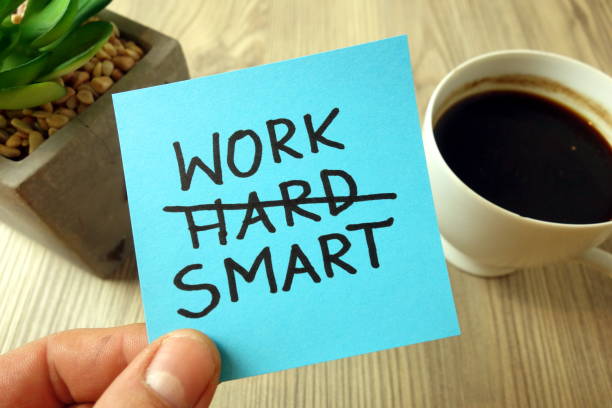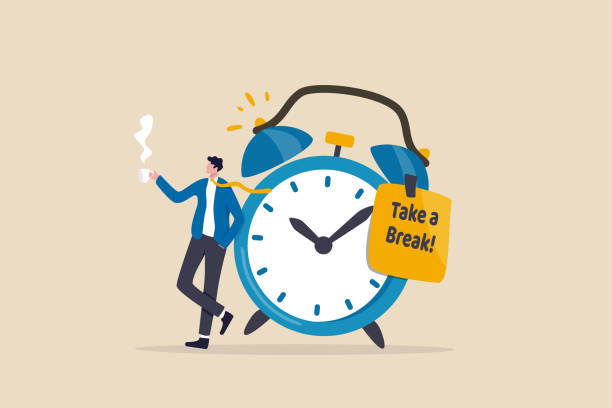
You must have heard when people say, “start working smarter, not harder.” Yet, every day, a large number of people give their all at work. They work extremely hard to get paid and noticed. They do it to make sure they keep getting paid and even to get recognized for a promotion. All of this brews workplace toxicity.
The truth however is that most of us can become more efficient without being burnt out . Over time, we develop bad habits or continue doing things in a one-sided way even though we have the tools to do it the easier way.
But if you’re looking to work smarter, look at your behavioural pattern before moving on to efficiency. What is the result you want to achieve, and is there a better way to get there?
Depending on your role, you may not be able to control the best way to reach conclusions. Instead of sending a quick IM, your manager may require you to fill out a very complicated form every day. Even if you can’t manage all of your work, in order to work smarter, you should at least ask yourself on a regular basis: Is there a better way? Do you have anything to say?
Why working smarter is a good idea
Your time and energy should not be wasted. Working smarter conserves your energy and optimizes your time. You can spend less time wasting energy and more time doing other important things.
Also, it makes you a more efficient worker. They know which tasks need to be completed in what order, and they know which strategies are best used to complete them. There are four additional benefits to starting to work smarter instead of harder.
- It makes time for more rest: Work smart and stay smart. provides more time for all kinds of recreation. This includes meditation, mindfulness practices, and even naps. Short naps have been shown to boost memory, mood, and creativity.
- Helps reduce or reverse burnout: Burnout lowers energy levels and harms mental health. But if you work smarter, you can manage your energy and reverse or reduce burnout. Working smarter shows you how you connect with your values, what’s important to you, and the goals you have in mind.
- Improve your work-life balance: Working longer hours and working smarter, instead of immersing ourselves in work, allows us to devote our time to our personal lives. Working smarter is a good time management practice that allows you to have more balance in your life and meet deadlines on time.
- Motivate your work: You can’t tell the difference after a few days of hard work. You will be more productive and more positive about your work, which will increase your motivation. You will understand what this new strategy entails for you, and it will motivate you to set new goals and continue to grow.
8 tips to working smarter, not harder
Here are tips to help you begin your journey to working smarter not harder. It can be done
1. Say goodbye to multitasking

Carrying too much can make you seem like you’re accomplishing a lot, but it can also make you look too skinny. The cerebral cortex only pays attention to one thing at a time. Multitasking strains the cerebral cortex by trying to focus energy and attention on too many different things.
You suddenly switch tasks away from the quality of your work because you are too busy to focus on something new. It won’t be as effective if you can’t put enough focus and energy into each task. If you find yourself jumping from one task to the next, take a deep breath and try to slow down. Conscious decision-making allows you to focus on one task and resist the urge to jump to another midway through. It takes practice. Realize that when you focus on one task at a time, you can work more efficiently, even though you feel like you’ve accomplished more.
2. Complete tasks in batches

Tackle tasks in batches to keep the momentum going. This way, you can focus on one task at a time.
Be proactive and schedule parts of your day around repetitive tasks. For example, reply to all emails at a scheduled time rather than when they arrive in your inbox. One strategy that can help with this is to block time. This involves dividing the day into smaller hours. That way, you’ll know when you have time to respond to emails and organize things. When you receive the email, you will know it will be processed later in the day. This limits interruptions during important tasks and gives you a better rhythm in a structured workflow.
3. Take breaks

Effective time management can help people work smarter by allowing them to prioritize their tasks, focus on the most important ones, and minimize distractions. It can also help people allocate their time more efficiently, so they can get more done in less time.
One key aspect of time management is setting goals. By setting clear, specific, and achievable goals, people can focus their efforts on the tasks that will have the most impact. This can help them stay motivated and avoid getting sidetracked by less important tasks.
Another important aspect of time management is prioritization. By identifying the most important tasks and tackling them first, people can ensure that they are making the most of their time. This can also help them avoid feeling overwhelmed, as they will be able to focus on a smaller number of tasks rather than trying to do everything at once.
Effective time management also involves minimizing distractions. This can involve setting boundaries around when and how people will check emails and messages, as well as taking steps to reduce unnecessary interruptions.
Innovative Tech Solutions, Tailored for You
Our leading tech firm crafts custom software, web & mobile apps, designed with your unique needs in mind. Elevate your business with cutting-edge solutions no one else can offer.
Start NowFinally, time management can also involve being proactive about scheduling and planning. By setting aside dedicated blocks of time for specific tasks, people can be more productive and avoid the last-minute rush that often leads to stress and lower-quality work.
Overall, effective time management can help people work smarter by allowing them to prioritize their tasks, focus on the most important ones, minimize distractions, and allocate their time more efficiently.
4. Block your calendar

Scheduling work during the day will help you stay organized and reduce distractions. Be mindful of how you plan your day and potential distractions.
Are you a morning worker, but are daily meetings disrupting your workflow? Are your colleagues coming to ask you questions while you’re doing something? One of many tools Use one to manage your calendar, schedule focus times and block notifications. Then respect the calendar.
5. Plan tasks based on your energy level

Finding your most productive and energetic hours at work is an effective way to work smarter. If you force yourself to work when your brain is tired, you won’t get a good job. It only makes you more afraid of responsibility.
If you work better in the morning, schedule important tasks that require a lot of energy. Instead of working against your strengths, work on them to achieve more and be more motivated.
6. Disable notifications to start working smarter
There’s no need to get Facebook or Twitter notifications while you’re trying to work. It just distracts you from important tasks and wastes your time. And when you’re waiting for a reply to a message, your concentration can get even worse. Turning off notifications for apps that aren’t work-related can help you be more productive. Most smartphones come with Do Not Disturb features that limit notifications and downtime, preventing you from using social media and non-productive apps during certain hours.
7. Enjoy nature

A diversion can help you when you’re stuck at work. If you feel trapped, you can’t get your most important work done. Getting outside for exercise can help you de-stress, calm down, and focus. If you have time during your lunch break, go to a nearby park and get some fresh air. Your mental health will thank you.
8. Make a routine and stick to it

Having a routine can help people work smarter in a number of ways.
First, a routine can help people get into a state of flow, where they are fully engaged in their work and able to focus more effectively. When people have a predictable schedule and know what to expect each day, they are better able to anticipate their workload and plan their time accordingly. This can help them stay organized and avoid feeling overwhelmed.
Second, a routine can help people save time by automating certain tasks and activities. For example, if people have a set time each day for checking emails, they can batch this task and get it done more efficiently. Similarly, if people have a set time each day for exercising or taking breaks, they can plan their work around these activities and avoid interruptions.
Third, a routine can help people maintain a healthy work-life balance. By setting aside dedicated blocks of time for work and other activities, people can ensure that they are not working too much or neglecting other important aspects of their lives. This can help them stay productive and avoid burnout.
Finally, a routine can also help people establish good habits and discipline. By consistently following a routine, people can develop good habits that support their goals and make it easier for them to accomplish their tasks.
Overall, having a routine can help people work smarter by helping them get into a state of flow, save time, maintain a healthy work-life balance, and establish good habits and discipline.
Final words
Working smarter can also be hard work if you are not focused and disciplined. To pull off smart work, you need some amount of dedication and reminder that this is what is best for your body, mental health, and emotional stability. Let us know how it goes after you start implementing these tips.
Before you go…
Hey, thank you for reading this blog to the end. I hope it was helpful. Let me tell you a little bit about Nicholas Idoko Technologies. We help businesses and companies build an online presence by developing web, mobile, desktop, and blockchain applications.
As a company, we work with your budget in developing your ideas and projects beautifully and elegantly as well as participate in the growth of your business. We do a lot of freelance work in various sectors such as blockchain, booking, e-commerce, education, online games, voting, and payments. Our ability to provide the needed resources to help clients develop their software packages for their targeted audience on schedule is unmatched.
Be sure to contact us if you need our services! We are readily available.











